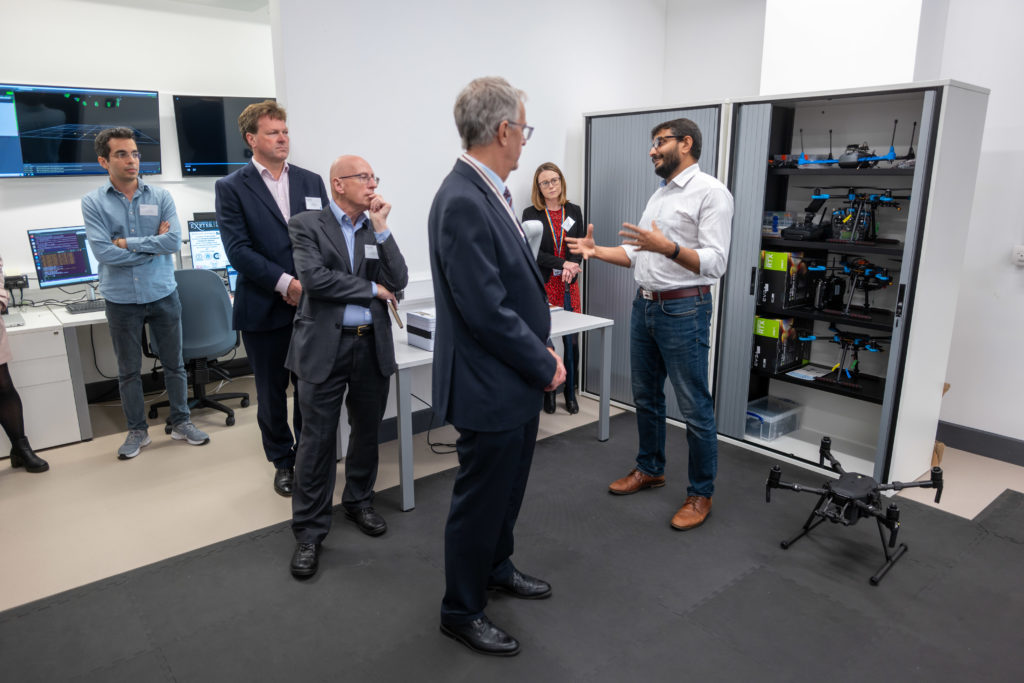Cooperative Robotics and Autonomous Networks (CRANE) lab at CFCM has significant experience developing robust and adaptive control and monitoring schemes, embedding autonomous behaviours and mission planning of unmanned systems in land, air, and water. Our research enhances the operational performance and resilience of conventional and autonomous mobile assets in the presence of uncertainties, disturbances, and failures.
Our capacity to develop cooperation among unmanned systems, infrastructures and humans allows collating vital information over the field and exploit it for beer, faster and more reliable decision-making.
In addition to developing rigorous theoretical concepts, we implement these novel methods on experimental and third party-owned platforms on land, air and sea.
The lab has an excellent track record of balanced Industrial and UKRI funding and developing fundamental and practical high-impact research in control, autonomy, and optimisation. Facilities and expertise in the CRANE lab include a world-class VICON motion capture system and test facilities for unmanned and robotic systems.
We can help our business partners develop and embed control and autonomy in systems. Some examples are:
Control system design and implementation, e.g., track desired performance requirements, optimal management of energy to meet specific duty cycle
Mission planning, e.g., plans for multiple heterogeneous vehicles to operate in time and fuel optimal sense n Cooperative autonomy, e.g., teaming of unmanned air and ground systems, connected autonomous vehicles
Information-driven approaches for science and defence applications, e.g., autonomous oceanography for understanding the health of the sea
Optional manning of all-terrain mobile platforms and platooning
Collision avoidance, e.g., navigating through cluered space in mixed traic scenarios
Validation and verification, e.g., assessing the robustness of the AOCS for the EUCLID mission

Read publications from our researchers at the Centre For Future Clean Mobility.
Decision Support System (DSS) for Hierarchical Allocation of Resources and Tasks for Disaster Management (July 2022)
Modelling and analysis of Parkinsonian gait (2023)
Cyclone Preparedness, Rescue Operations and Damage Assessment using UAVs (March 2022)
Detection of Cyber-Attacks in Automotive Traffic Using Macroscopic Models and Gaussian Processes
Model Based Moving Horizon Optimal Modes-Switch Schedule in Hybrid Powertrains for Marine Applications (May 2022)
Sliding Mode Observer-Based Finite Time Control Scheme for Frequency Regulation and Economic Dispatch in Power Grids (July 2021)
Adaptive dual-layer super-twisting sliding mode observers to reconstruct and mitigate disturbances and communication attacks in power networks (July 2021)
Finite-Time Output Parameter Estimation for a Class of Nonlinear Systems (June 2022)
The Centre for Future Clean Mobility partners with businesses to develop low-emissions, high-efficiency integrated power systems for applications in the marine, off-highway, rail, defence, and energy sectors.
Website by NOSY Creative Agency